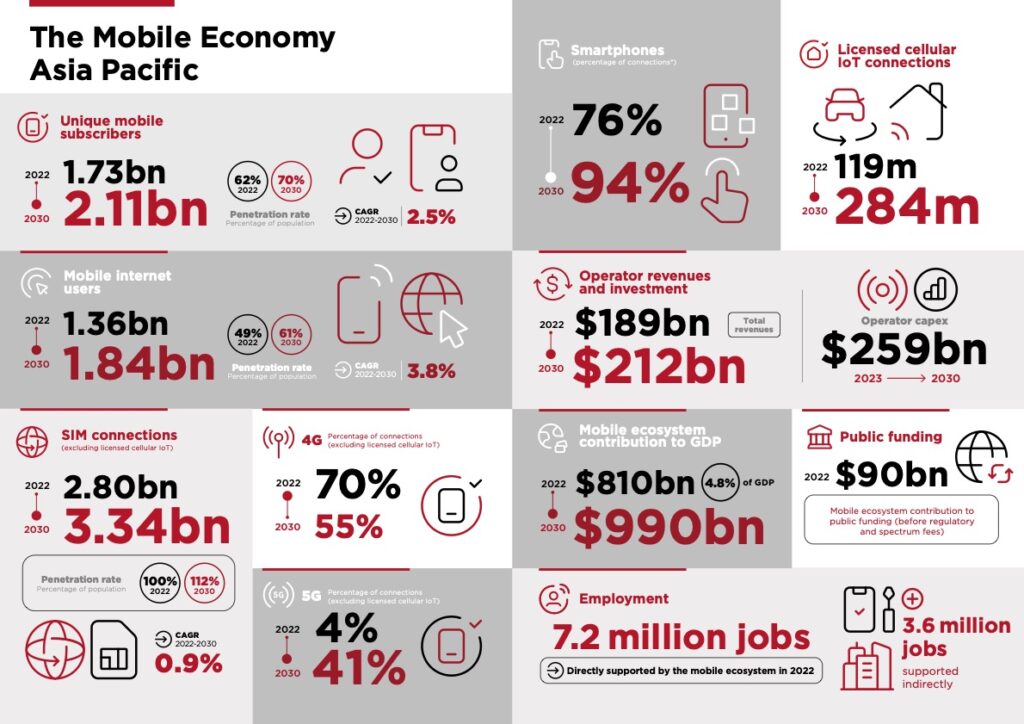The GSMA expects 5G connections to account for 41% of all mobile connections by 2030
According to the GSMA’s new Mobile Economy APAC 2023 report, the Asia Pacific (APAC) region is experiencing exponential 5G growth, with next-gen connections predicted to account for 41% of all mobile connections by 2030, up from just 4% in 2022. Further, by the same year, $130 billion will be added by 5G to the region’s economy.
“5G is gaining momentum across Asia Pacific, driven by a combination of factors, including rapid network expansion in many markets (such as India), the fall in average selling price of 5G devices and operators’ marketing efforts,” the GSMA stated. However, it did add that for the “foreseeable future,” 4G will remain the dominant technology at a regional level, and in 2030, will still account for more than half of total connections.
Additional key trends contributing to 5G’s growth in the region, said the GSMA, include the rise of generative AI, the shift to circularity in telecom to reduce waste, high levels of telco consolidation in the APAC, a fast-growing fintech industry fueled by mobile, and finally, what it calls the “growing monetisation imperative.”
“As 5G adoption grows, the monetisation imperative will escalate. A ‘wow’ factor is required to attract new customers or incentivise existing ones towards higher spend,” explained the Association.

The report also forecasts that there will be more than 3 billion smartphone connections in across Asia Pacific by 2023, which the GSMA said will translate to a smartphone adoption rate of 94%. Additionally, mobile data traffic will more than double in in the region, with video and online gaming expected to be among the top 5G-enabled services. Lastly, mobile’s contribution in the Asia Pacific is predicted to reach approximately $990 billion by 2030.
“Mobile connectivity continues to be at the core of digital innovation in Asia Pacific, enabling a wide range of transformative technologies for individuals and enterprises, and helping governments to deliver positive impacts for society,” commented the GSMA, adding that regional authorities are pushing initiatives to integrate mobile-enabled technologies across “every aspect of society,” such as healthcare, Industry 4.0, closing the digital divide and addressing climate-related disasters.

